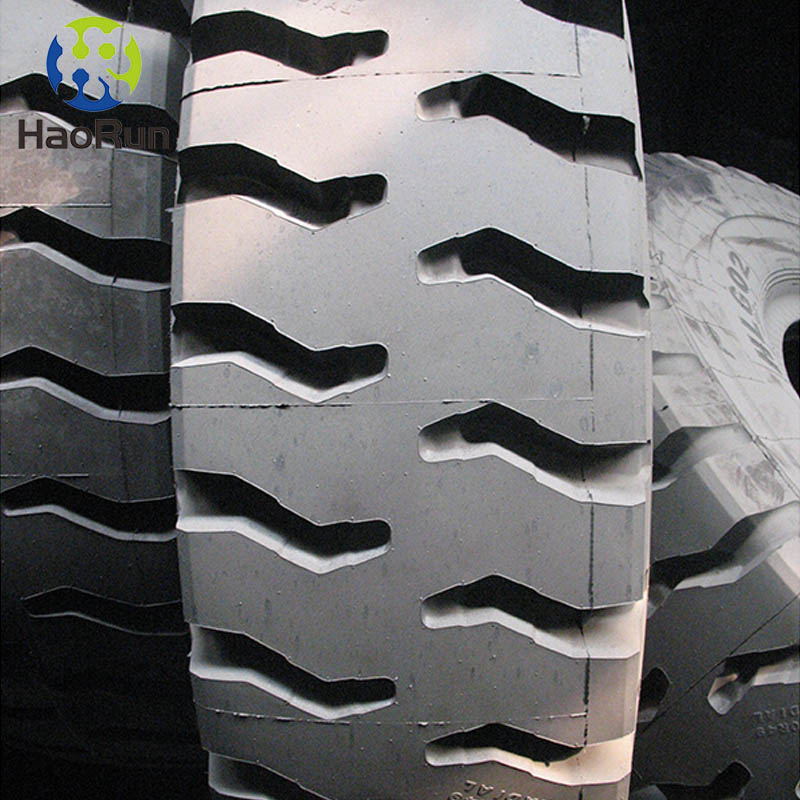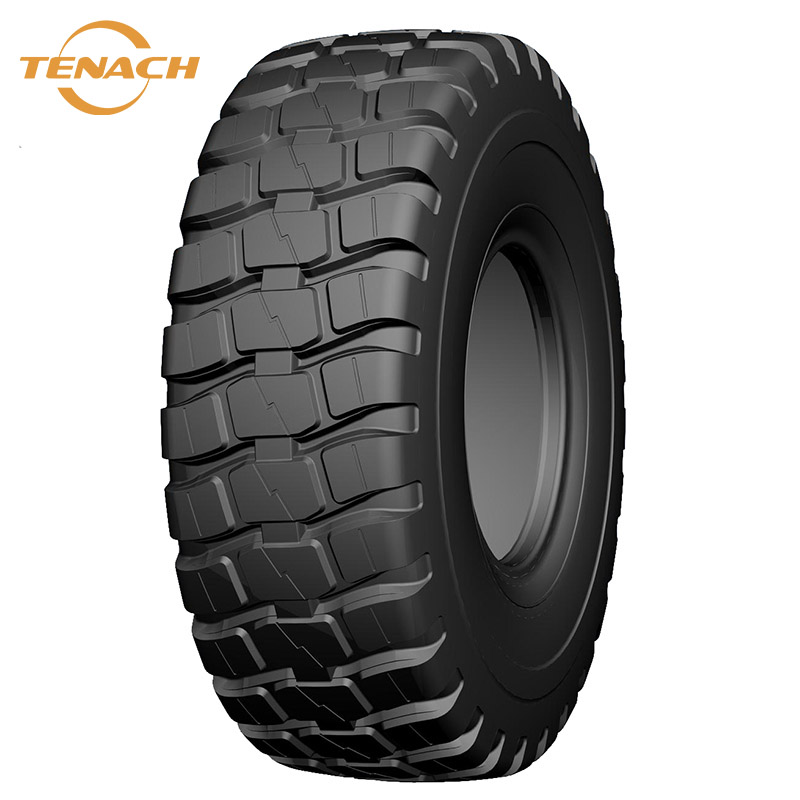What is a bias OTR tire
2021-08-13
Diagonal OTR tire (bias OTRtire) is also called ordinary tire. Refers to a pneumatic tire in which the carcass ply and the cords of the adjacent layer of the buffer layer intersect and are arranged at an angle of less than 90 ℃ with the center line of the tread. This kind of tire has good longitudinal rigidity and is suitable for driving at medium speed on ordinary roads.
Bias OTR tires can be simply called nylon tires. This concept is relative to radial tires, so-called steel tires.
Structural characteristics of bias OTR tires
The carcass ply of a bias OTRtire is composed of several layers of rubberized plies. The adjacent plies have the same cord angles and are arranged crosswise. The number of plies is generally an even number, so that the load of the carcass plies can be evenly distributed. The angle of the crown cord of a bias tire is usually between 48 degrees and 55 degrees. The angle of the crown cord refers to the angle between the cord and the vertical line of the crown center. The ply is divided into two parts: the inner ply and the outer ply. The inner ply is the main skeleton layer of the carcass, which is characterized by a large number of layers and a denser cord density, which increases the strength of the carcass.
The outer ply layer is located between the inner ply and the buffer layer to play an excessive role. It is also called the auxiliary layer of the carcass. It is characterized by a small number of layers, usually only two layers. The cord density is sparser than the inner cord, and the amount of glue attached More, with higher pinching strength, the buffer layer is located between the outer ply and the tread rubber, and its structure is composed of film or two or more layers of hanging rubber cords, and a buffer layer is attached to the upper, lower or middle of the cloth layer.The buffer layer ply has a sparser density than the outer ply, and the thickness of the glue is thicker.
The cord angle is equal to or slightly larger than the cord angle of the ply. . Generally, the buffer layer of heavy-duty tires adopts a combined structure of hanging rubber cord and film, and car tires can also use buffer film as the buffer layer. Now, in order to simplify the manufacturing process, improve the efficiency and economic benefits of bias tires, it has tended to be lightweight and layered.
























































